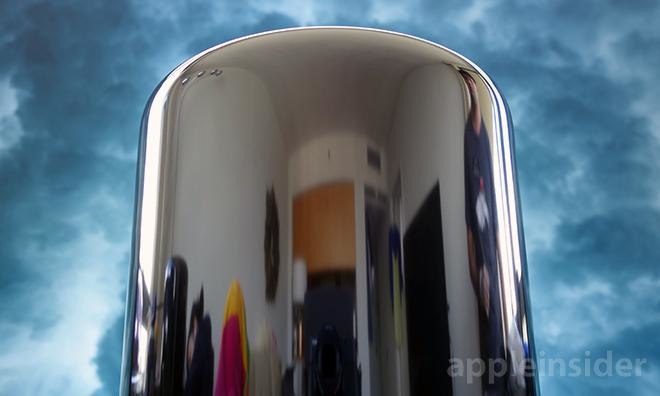President Donald Trump on Thursday said he plans to impose stringent tariffs on imported steel and aluminum, a move that could prompt companies like Apple, which rely heavily on those materials in product manufacturing, to raise pricing.
In opposition to pro-trade advisors, Trump intends to sign a measure next week that will impose tariffs of 25 percent on steel and 10 percent on aluminum, reports The New York Times. The president is calling for a no exemption policy, effectively levying a hefty tax on all foreign imports of those metals.
"People have no idea how badly our country has been treated by other countries," Trump said. "They've destroyed the steel industry, they've destroyed the aluminum industry, and other industries, frankly."
He added the tariffs will be in effect "for a long period of time."
Depending on how the measure is implemented, Apple products might see a bump in selling price. The company crafts a number of devices out of aluminum and steel, including iPhone, Apple Watch and Mac, though most products are manufactured outside of the U.S. in many cases using materials sourced from foreign suppliers.
According to Gene Munster of Loup Ventures, Apple is unlikely to suffer a major blow if Trump's trade measure applies to raw materials. Currently, Apple's domestic manufacturing capacity is limited to the production of certain Macs, specifically the aluminum-cylindered Mac Pro.
If, however, the tariffs apply to finished goods, Munster estimates Apple device costs could rise by as much as 0.2 percent. The analyst arrived at the figure by calculating the tax as a percentage of the metal components that go into iPhones and Macs.
Rosenblatt Securities analyst Jun Zhang disagrees, saying the tariff is unlikely to lead to an increase in costs.
"It'll just increase the trade wars between the U.S. and China, but there won't be much impact on the technology itself," Zhang told Bloomberg.
Alternatively, Apple could eat additional costs, if any, and continue to price its products in line with industry trends.
What the new tariff means for Apple's planned U.S. manufacturing plants remains unclear. Trump himself announced Apple's intent to build "three big plants — big, big, big" in its home country. Little is known about the facilities and what they will produce or assemble, though it is believed Apple is working on the project in partnership with one or more of its Asian suppliers.
Beyond Apple, Trump's tariff proposal, which would fulfill a campaign promise, has wide-reaching effects touching a number of vital U.S. industries. Over the past few months, automakers, food packagers and other interested parties warned the sanctions could lead to trade wars.
Heavy aluminum and steel consumers that stand to lose out if other countries decide to retaliate against the tariffs are already seeing ill effects from today's announcement. As noted by The Times, shares of automakers declined, as did the stock price of Boeing.
Editor's note: Due to its political nature, comments for this article have been disabled.
 Mikey Campbell
Mikey Campbell








 Marko Zivkovic
Marko Zivkovic
 Mike Wuerthele
Mike Wuerthele
 Christine McKee
Christine McKee
 Amber Neely
Amber Neely
 Sponsored Content
Sponsored Content
 Wesley Hilliard
Wesley Hilliard

 William Gallagher
William Gallagher









There are no Comments Here, Yet
Be "First!" to Reply on Our Forums ->